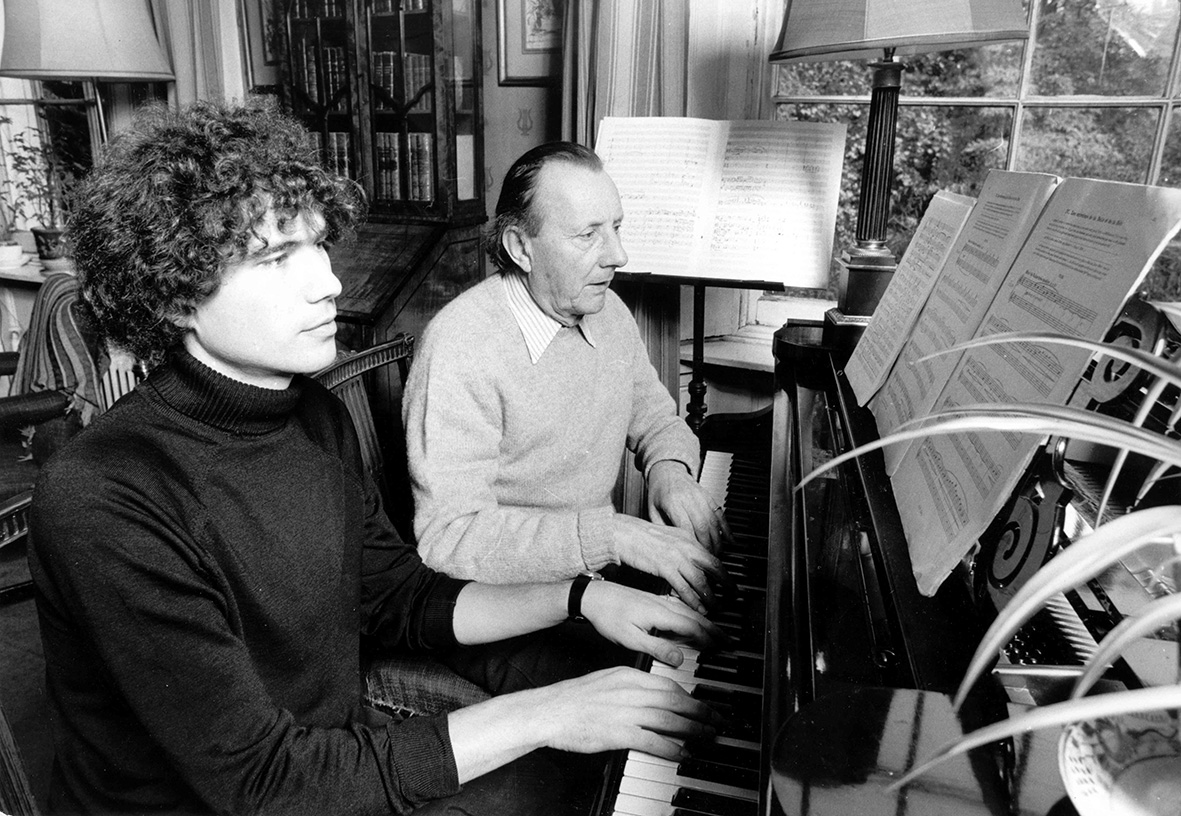Songs by Lennox and Michael Berkeley
Peter Reed reviews songs by Lennox and Michael Berkeley
Tritschler had a lot to compete with – Wimbledon, World Cup and sizzling heat – but he didn’t hold back on well-served, back-of-the-net communication and involvement. Joseph Haydn’s She never told her love set the bar high for Tritschler’s command of hushed stillness, and the long introduction heralded the high quality of Jonathan Ware’s role at the piano. In contrast, Haydn’s younger brother Michael (by five years), in Tritschler’s nonchalant take on ‘Die Vergänglichkeit aller Dinge’ (The ephemerality of all things), came disarmingly close to the quixotic and romantic spirit of Hugo Wolf. There had been many instances of the impeccable delicacy of Tritschler’s high chest voice, which came into its own in the haunting evanescence of two mélodies by the short-lived Lili Boulanger, to which Tritschler added barely perceptible notes of wonder and eroticism, along with his exquisitely natural French, the ensemble giving rise to perfect-world thoughts about Tritschler and Pelléas – his voice has that irresistible tenor-baritone ambiguity that makes folk go weak at the knees. Following the interval, Tritschler flirted with the spectral longing and despair that flickers elusively in Berkeley father-and-son A. E. Housman settings. Michael’s Nettles, in which Tritschler pitched the book-ending vocalise into the piano to haunting effect, came across with lacerating honesty, and Tritschler became even more remote in superbly imagined accounts of three of Sir Lennox’s Five Housman Songs, suspending his voice over the frozen abyss of ‘Because I liked you better’ like a windless sail. This was a big recital, and the two artists were firing on all cylinders for a compelling and expansive performance of Britten’s Seven Sonnets of Michelangelo, which thrived on the bel canto virility of Tritschler’s sound. Everything fell into place, the balance between vocals and piano, the sweet spots in his voice that work a devastating magic, and the imaginative bravura that carries all before it. Ware, outstanding throughout, surpassed himself, as much therapist and conniver as accompanist. Their encore, Twins by Michael Head [who studied with Lennox Berkeley] briefly touched on yet another sibling permutation.
